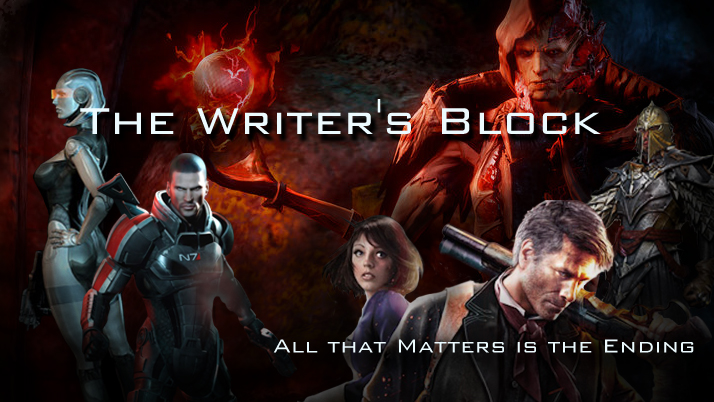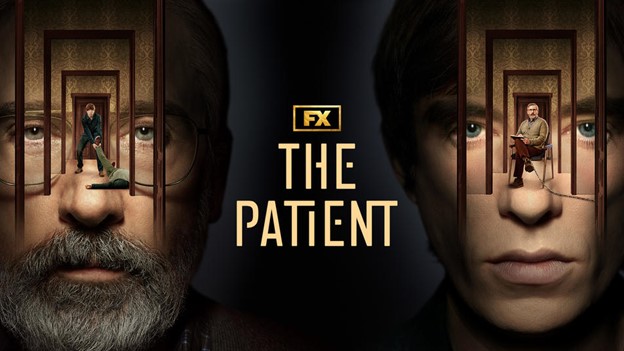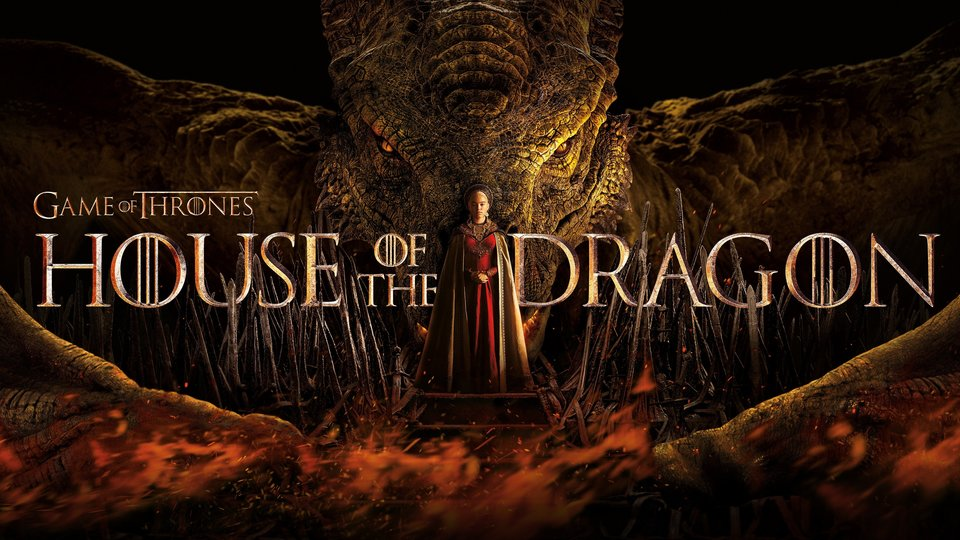Apologies for the long wait on the follow up, but the holiday season is always a busy one. Before I start, I’ve seen a number of questions online about my article, mostly relating to why I didn’t mention Corypheus was a DLC character from Dragon Age 2. The reason is I never played Dragon Age 2, once I saw the boring map design and the cartoonish new look for the Darkspawn I knew I wasn’t interested. Then my “brother” died, but that had absolutely no emotional impact since we’d spoken once, and knew I wouldn’t be bothering with that game. I’ve since heard the story is pretty good, but I still hear so many complaints about the game I have very little motivation to go back and play it.
Having the main villain be a character from a DLC that probably very few people bought is a huge dick move. Way to go EA!
They should have just slapped the EA logo on a torso and named that the villain of Dragon Age: Inquisition. It would have been far more satisfying than Corypheus…
Why Corypheus is a Bad Villain
First of all, Corypheus dialogue. It’s bad. It’s just…so bad. It’s not just that he’s a generic evildoer, it’s that every line of dialogue he spews reveals nothing about his character or his motives. Every word is dedicated to making sure we know that Corypheus is evil. Even the responses to his dialogue are bad.
Corypheus: I knew you would come
Player Character: It ends here, Corypheus!
Corypheus: And so it shall!
-Dialogue at Final Fight of Dragon Age Inquisition… or possibly the dialogue from an episode of Adam West’s Batman.
It’s like this whole exchange was pulled from the Big Book O’ Cliches. It’s dry, unimaginative, and utterly anemic when it comes to generating any kind of excitement for that final battle.
Remember Saren’s dialogue from Mass Effect? Now that was good dialogue, especially the scene on Virmire where he reveals that his motives aren’t about personal power or his hatred of humanity, but preserving life. Even as indoctrinated as he was, his arguments made a certain amount of sense, he was basically the Anti-Shepard: they had the same goal (preventing the extinction of the galaxy) but different plans for achieving it. Saren didn’t fully realize the effects of his indoctrination until the very end, but up until that point he thought he was saving the galaxy. Saren wasn’t evil for the sake of being evil. He was simply a character that walked down a road paved with good intentions and ended up turning into a monster. That’s a good villain.
To bring up Origins again, while the Archdemon was the final boss in Dragon Age: Origins, the villain you interacted with the most was Loghain. Now Loghain was another good villain, because he had motives and reasons beyond just “I need to be an obstruction to the main character.” If you let Loghain live after the Landsmeet, you can question him on his reasons for abandoning the King at Ostagar.
“What would you have had me do instead? Sacrifice the entire army to save one man?”

Loghain did attempt to convince King Cailan, several times in fact, to retreat to the rear rather than play warrior on the frontline. And Loghain was entirely correct in his assessment, Ostagar had been a trap, and to waste the rest of the army in order to save Cailan would have been a foolish and most likely futile endeavor. Even had they somehow won the battle, the Archdemon had yet to show itself, so the Fereldan army would have been severely weakened in the attempt with no real gains to show for it. More Darkspawn would have emerged from the deep roads eventually (and in fact you see hoards of them marching to the surface when you visit the Deep Roads) and the Fereldan army would no longer have the manpower to stand against it.
In fact Cailan’s plan is so stupid I don’t even know why Duncan agrees to risk his Grey Warden’s on the frontline, or even bring them to the battle at all. The only way this would have made sense is if Duncan had just been using the Fereldan army as bait, hoping to draw out the Archdemon or at least enough of the horde to convince the other nations of Thedas to help the Grey Wardens. Which is actually a really good possibility given the Grey Warden’s infamous pragmatism.
To get back on point though, Loghain and Saren were good villains. Their motives, personalities, and histories were all revealed through dialogue. That’s what good dialogue is supposed to do: characterize.
Corypheus’s dialogue just sits there and it’s only purpose is to reinforce him as an evil bad guy.

The only point at which Corypheus comes close to actually becoming a character, and not a scooby-doo villain, is during an optional quest to visit the Temple of Dumat. There you can hear Corypheus’s thoughts, and he reminisces about his experiences invading the Golden City and gives some insights into his character. Yet even these are too short and too few to really reveal anything interesting about Corypheus. Of all the problems Inquisition has, this one is the problem that confuses me the most, because it’s not like Corypheus couldn’t have been a good villain. In fact, he could have been a great villain.
Think about this man for a moment and the world he came from. He went into the fade thinking he was one of the most powerful people in the world, and he strode into the Golden City to claim its power, and then he watched as it turned black around him. The city began twisting and warping around him, swallowing him up in darkness and corrupting him. His body twisted and deformed beyond recognition, probably in constant pain. There were so many different motivations and personalities that could have emerged from such a traumatic event. Even though 99% of his dialogue is trash, there was one line that really stood out.
“I’ve seen the throne of the gods…and it was empty.”
That was a good line, because it revealed something about him, that even though the Tevinter Imperium didn’t believe in the Maker, Corypheus was still expecting to find something. For a spiritual person, I can imagine no greater horror than visiting the home of your god and finding it empty. For Corypheus, watching the power that should have been his, turn on him and twist him into something less than human must have been equally traumatic. His old gods didn’t come to his rescue, and he was cast out as if he were nothing more than a rat invading a giant’s palace.
So did Corypheus want to be a god because he was afraid people would lose hope, as he did, when they found out there was no Maker?;
Or did he believe his corruption really was the Maker’s punishment, and attempt to assault heaven to destroy the Maker’s world?;
Or did he simply want to return because the emptiness that he found drove him mad?
We’ll never know, because all he could think to say was “I will be a god!” at every opportunity.

Of course his stupid cliched dialogue is nothing compared to his biggest problem: he’s terrible. He literally fails in everything he ever does.
- Went to the Golden City and fucked it up.
- Managed to kidnap the divine in the middle of the most heavily fortified place in Thedas…and then forgot to lock the door.
- Manages to drop his god-orb just as his anchor is about to spawn, then stares at it like a confused kitten as it rolls away.
- Attacks a tiny little mountain hamlet with a huge army and a dragon… and somehow loses.
- Tries to corrupt the Grey Wardens, fails and loses his immensely power Fear Demon ally in the process.
- Marches into the Arbor Wilds where his army is immediately annihilated and he fails to drink water from a pond.
- Finally reopens the rift, laughs maniacally, and then promptly falls over dead.
In order for a villain to feel like a threat, they have to at least succeed once. They have to feel like an actual obstacle to the protagonist’s progress, otherwise they’re just some minor character who doesn’t serve the story.
My character was always acting so angry when he talked to Corypheus, and I never understood why. Okay he blew up the conclave and the divine… but why is my character taking that so personally? Corypheus’s attack on Haven results in the death of a bunch of nameless soldiers and a couple of minor characters, okay, but we never see our character bond with any of them so why are you taking it so hard? I didn’t even know there was a bartender in Haven until my second playthrough, was her death really that traumatic?
We needed a Battle of Hoth, or Ostagar, or Virmire. We needed a section where Corypheus stands triumphant, where everything seems lost, to really make Corypheus a good villain. When I saw the burning ruins of Eden Prime I knew Saren was a threat, but when I had to sacrifice a member of my crew on Virmire, that made it personal. Stopping the Darkspawn was important, but making Loghain pay for his betrayal and getting my friend Duncan killed was the real motivator.
The closest Corypheus gets to his moment of triumph is at Haven, but then he starts monologuing while you casually walk over to a catapult and bury him under a mountain. That kind of undermines the whole thing.
Corypheus never felt threatening because he never won, the whole game is Corypheus going from failure to increasingly crippling failure. Wil E. Coyote was more successful. It’s nothing short of a miracle that Corypheus didn’t get himself killed in one of his botched plans.
You know who was a threat though? That could have really raised the stakes of the game’s story?

The Fear Demon Should Have Been the Villain
Had I been writing the story I would have kept Corypheus, but in the end revealed him to be a mere pawn of the Fear Demon. In fact the title “Elder One” is a far more appropriate title for the Fear Demon than it is Corypheus. Corypheus is what, a thousand years old or so?
Fear is timeless.
Fear is the most basic and primal emotions, present in every single animal on the planet. For complex animals like humans, we can experience so many different types of fear, ranging far beyond the basic fear of death. Fear of crowds; arachnophobes; children afraid of the dark; people with anxiety disorders.
The Fear Demon would feed on them all, and this demon is probably as old as time itself. It has gorged itself on fear for countless millennia. Then Corypheus rips open the fade and the Fear Demon can begin manifesting itself in the mortal world, taunting the world with nightmares and twisted creatures, bending people to its will by exploiting their deepest fears. Fighting Fear itself would have been a battle worthy of the Inquisition. You see, while no one’s motivation for Corypheus was really believable (I mean did they really think he’d be a good god?), people siding with fear would be totally believable. People surrender to fear all the time, and to be spared living your worst nightmares every night, I could easily see people doing anything Fear wanted.

Then the inquisition could actually act like an inquisition, rooting out those who have surrendered to fear. The Inquisition in the game acted like a straight up military or kingdom, but an inquisition is in theory an organization whose primary role is investigative. You never saw the Spanish Inquisition march to war, but you did see people disappear into their dungeons and arrest people on the testimony of people they tortured.
Of course the most interesting aspect of having the Fear Demon as the villain would have been that we were no longer just fighting armies and demons…we’d be fighting an idea, and ideas never truly die. Even if we drove fear back into the fade, it would still be there waiting and feeding. Growing strong until the day it could emerge back into Thedas once again…







Leave a comment